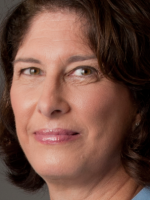DEBBIE ELLIOTT, host:
This is ALL THINGS CONSIDERED from NPR News. I'm Debbie Elliott.
In Washington this weekend, Democrats are busy shifting the calendar for the selection of their presidential nominee in 2008. The Rules and Bylaws Committee of the Democratic National Committee decided to abandon the tradition of caucuses first in Iowa and then a primary in New Hampshire.
NPR's national political correspondent, Mara Liasson, has been following the developments and joins me now.
Mara, what's the schedule for primaries and caucuses now?
MARA LIASSON reporting:
Well, Democrats scrambled the schedule a little bit. They've added a couple of states to that sacred ground on the calendar, which are the early weeks in January and February, that until now were considered the sole and exclusive province of Iowa and New Hampshire. What they've decided to do is let Nevada hold a caucus after the Iowa caucuses and before the New Hampshire primary. And they've decided to let the South Carolina primary come a week after New Hampshire holds its traditional first in the nation primary on January 22nd.
ELLIOTT: Why did the Democrats want to do this?
LIASSON: They want to make the nomination process more representative of the actual population of the United States, and in the process, hopefully, make their candidates more competitive in a general election. Now, both New Hampshire and Iowa are about 95 percent white and they have disproportionate influence in choosing the presidential nominees, from both parties actually.
But the Democrats have an important constituency in African-Americans and Hispanics, which are the fastest growing part of the electorate. So the DNC wanted to put a heavily Hispanic state early in the calendar, and also a heavily African-American state. So after two years of discussions and presentations, they finally chose Nevada, a state with a big Hispanic population and it's in the Southwest, which is an area that's increasingly competitive for Democrats in presidential races; and they chose South Carolina, which already holds an early primary, and where the primary electorate is heavily African-American.
ELLIOTT: I imagine this must have been controversial for some of the delegates, especially those from New Hampshire.
LIASSON: Yes, it was very controversial with New Hampshire. New Hampshire fought very hard against this. As a matter of fact, there is a New Hampshire law that requires the primary there to be scheduled a week before any, quote, similar election. If necessary, New Hampshire would hold its primary two years ahead of time, if it felt that was necessary to protect its status. But the DNC purposely put a caucus state, Nevada, in front of New Hampshire, hoping that will not threaten New Hampshire's status as the first primary state.
Now, the New Hampshire Secretary of State now has to decide if he will take any retaliatory action. But just to give you an example of how important their first in the nation status is to New Hampshire voters, not a single Democratic presidential hopeful has spoken up in favor of these changes. As a matter of fact, Delaware Senator Joseph Biden, who's exploring a presidential run, was in New Hampshire on Friday and he spoke out very loudly against any changes in the calendar. It's sort of that - like supporting New Hampshire's first in the nation status is as inviolate a ritual as appearing at the Iowa State Fair.
ELLIOTT: NPR's national political correspondent, Mara Liasson, thank you.
LIASSON: Thank you, Debbie. Transcript provided by NPR, Copyright NPR.







